Unfortunately, green electricity is only produced when the wind blows or the sun shines. This means power consumers need to adjust. With the help of price signals, new intelligent data networks can help to use energy when it is created.
The authors
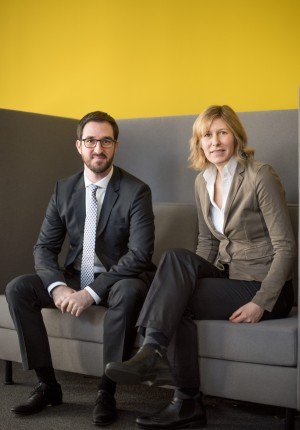
Together, Dr Holger Höfling & Dr Henrike Koschel gathered the information on smart grids. Henrike Koschel is a Product Manager at KfW Mittelstandsbank, while Holger Höfling is an energy expert in the KfW Research department.
Learn moreAlongside energy efficiency, the expansion of renewable energies is the main pillar of the energy transition in Germany. The share of green electricity already amounts to more than 32 per cent of the gross electricity consumption. By 2050 – according to the target of the German Federal Government – this should be at least 80 per cent. One of the greatest challenges of the energy transition is keeping the power grid stable, and balancing the production and consumption of electricity. This is because wind and solar energy are subject to significant fluctuations, and they are increasingly fed into the transmission grid on a decentralised basis via millions of installations.
Intelligent power grids – also known as smart grids – offer a solution here. While power grids previously had the main task of transmitting the electricity produced in large central power plants and distributing it to consumers, a smart grid also fulfils the function of a data network that connects centralised and decentralised production facilities with flexible electricity consumers.
Smart grids are based on intelligent measuring systems, known as smart meters. These are a combination of a digital electricity meter and a communication module, the smart meter gateway. This means power consumption and production are measured in real time and at the level of individual installations. The data on network statuses is transferred continuously into the data network, managed, bundled and sent again by the gateway administrator, to the energy supplier for example. The meter operator takes on the role of the gateway administrator. This is generally the local network operator.
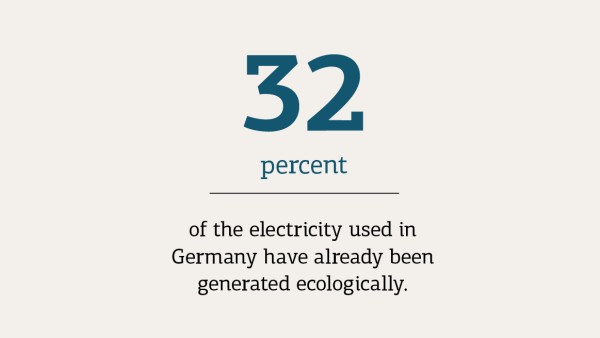
With the Act on the Digitisation of the Energy Transition, the German Federal Government gave the go-ahead for smart grids and the step-by-step rollout of smart meters from 2017. Large electricity consumers and decentralised production facilities are obliged to integrate smart measuring systems. But private households should also be equipped with digital meters on a large scale over the next 15 years, which can optionally be integrated into the smart grid. Privacy and data security are regulated in the law by minimum technical requirements.
Smart meters have many advantages: they record current data on electricity consumption and make this visible on a display, online or via a smartphone app. They enable the introduction of variable electricity tariffs that are tied to the price signals of the electricity market. This means they not only encourage power conservation, but also encourage power usage at times when there is a high feed-in of green electricity – this is when the price on the electricity market is particularly low.
Read more below the infographic.
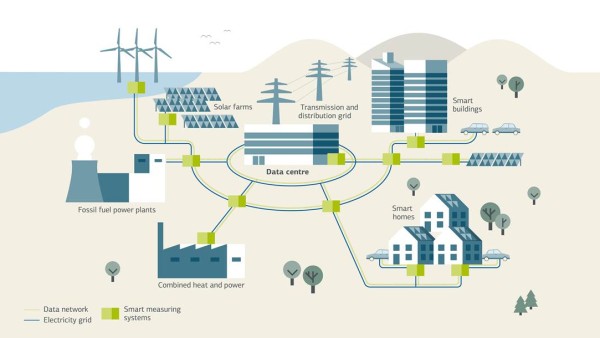
Two grids from one
The development of smart grids means that parallel to the electricity networks a virtual data network is created, too. Information about it is also provided enabling optimal management of the power system.
This flexibility in electricity demand is important so that power supply systems can react better in future to the fluctuating supply of wind and solar energy. So in the future, data on customer behaviour and system statuses will be collected at millions of measuring points.
This big data and its smart evaluation offer opportunities for new business models based on tailored customer solutions that extend beyond traditional energy services.
So we can expect to see not only established energy companies but increasingly also innovative service providers and data specialists expand in this market.
Electricity supply contracts with variable and particularly reasonable tariffs for customers that volunteer detailed consumption data, or allow the network operator to control their installation remotely (electric heating system, heat pump for example), are just some of the many options offered by smart meters.
Modernising distribution networks in the direction of smart grids requires significant investments. KfW has set itself the target of supporting companies in the digital transformation of the energy system. Thus since November 2016 there has been an appropriate financing offer available for smart measuring systems as part of the KfW Renewable Energies - Standard programme.
Published on KfW Stories: Friday, 2 June 2017

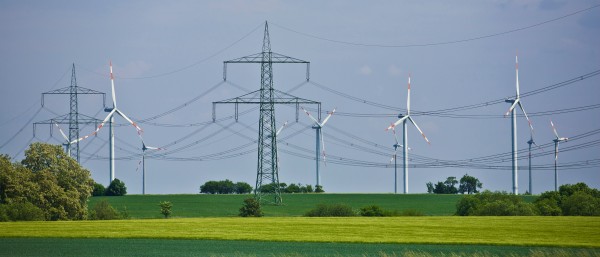
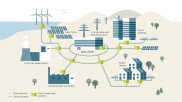
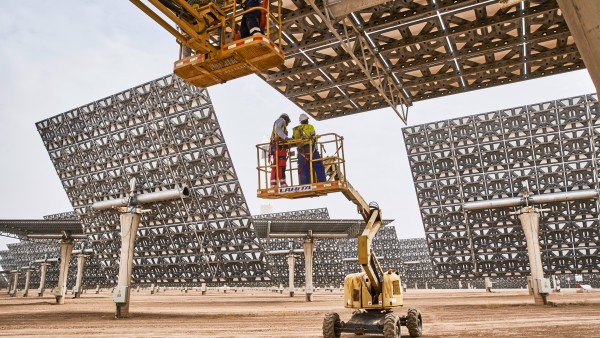

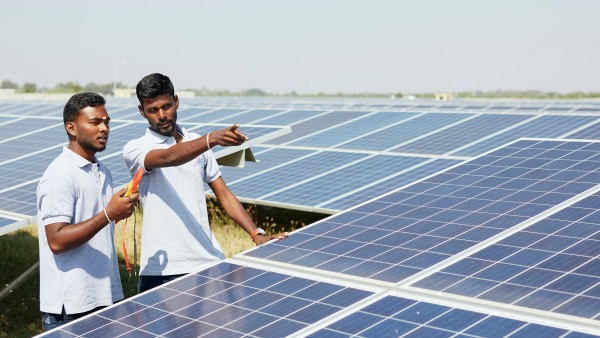
Data protection principles
If you click on one of the following icons, your data will be sent to the corresponding social network.
Privacy information